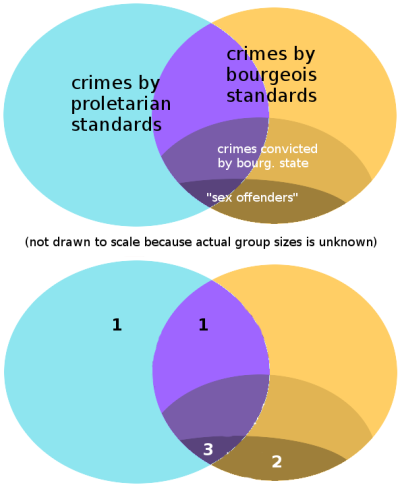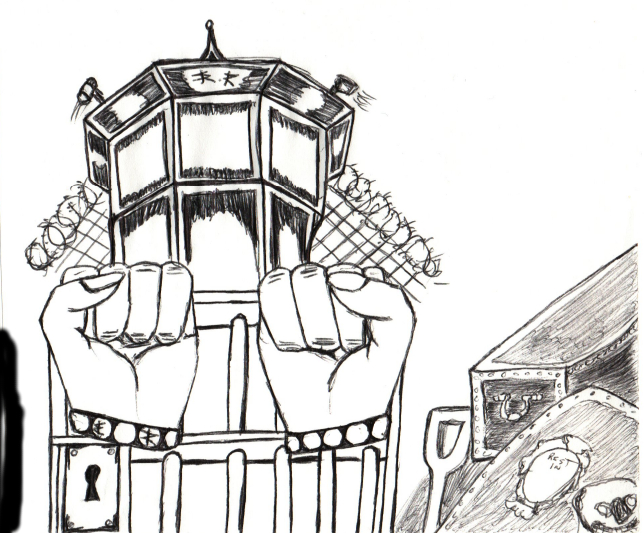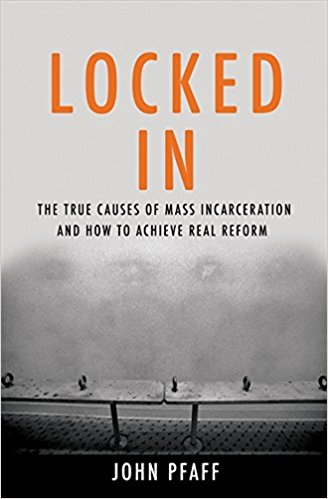
Sex Offenders vs. Anti-People Sex-Crimes
This issue of ULK is refocusing on an ongoing debate we’ve held in these pages of the role “sex offenders” can, or can’t, play in our revolutionary organizing. Many of our subscribers see “sex offenders” as pariahs just by definition of their conviction, yet we also receive letters from “sex offenders” with plenty of interest in revolutionary organizing. How/can we reconcile this contradiction? This is what this issue of ULK explores.
As you read through subscribers’ article submissions and our responses on this topic, you’ll see some common themes, some of which have been summarized below. This article also is an attempt to provide a snapshot of where we are now on this question, and suggest some aspects of our organizing that need to be developed more deeply.
The “Sex Offender” Label
There are three groups that are discussed throughout this issue that need to be distinguished.
- People who have committed crimes by proletarian standards, but have not been convicted of them (i.e. Donald Trump, people whose sexual assaults go unreported, prisoner bullies, etc.). These people are not called “sex offenders” according to the state’s definition.
- People convicted of being “sex offenders” who didn’t commit a crime by proletarian standards (i.e. people labeled as “sex offenders” for pissing in public).
- People who are convicted as “sex offenders” by the state, for behaviors that would also be considered crimes by proletarian standards (i.e. physical assault, pimping, etc.).
Throughout this issue the term “sex offender” is used to mean any one of those categories, or all three. It’s muddled, and we should be more clear on our terminology moving forward. By the state’s definition, the term does include some benign behaviors such as pissing in public (group 2); crimes which are convicted in a targeted manner disproportionately against members of oppressed nations. So we put the term “sex offender” in quotes because it is the official term that the state uses, and it includes people who have not committed anti-people (anti-proletarian) sex-crimes. Under a system of revolutionary justice, people in group 2 would need no more rehabilitation than your average persyn on the street.
We cannot trust the state to tell us what “crimes” someone has committed, and this is true for sex offenses as much as anything else. This country has a long history of locking up oppressed-nation men on the false accusation of raping white wimmin, generally to put these men “in their place.” We have printed many letters from people locked up for “sex offenses” but who have not committed terrible acts against people.
Interestingly, most of our subscribers know there are many falsely-convicted prisoners in all other categories of crime, and they readily believe that many are innocent. But when the state labels someone a “sex offender” that persyn becomes a pariah without question. This is an important thing for us to challenge as it represents, to us, a patriarchal way of thinking in prison culture. Usually it is paired with rhetoric about the need to protect helpless wimmin and children and is just a different expression of patriarchal norms: in this case the non-“sex offender” playing protector-man by attacking anyone labeled “sex offender.”
Why don’t we see this with people with murder convictions? Isn’t killing someone also a horrifying act that should not be tolerated? And why is sexual physical assault in prison allowed to proliferate? In the 1970s, Men Against Sexism was a group organizing in Washington state against prison rape, and they effectively ended prison rape in that state.(1) Statistics show that people “convicted of a sexual offense against a minor”(2) are more likely to be sexually assaulted in prison. Are the people who are “delivering justice” to these “sex offenders” then cast out as pariahs? Why is the state’s label, and not people’s actual behavior, given so much validity? These are questions United Struggle from Within comrades need to dig into much deeper.
Anti-People Crimes
Anti-people crimes include many different behaviors, from complacency with capitalism and imperialism, to extreme and deliberate acts of reactionary violence. Anti-people crimes include manufacturing and selling pornography, illegal drugs, and even alcohol and cigarettes, much of which is legal or at least permissible in our Liberal capitalist society. And it includes all sadistic physical assault, which would include all forms of sexual assault.
From our perspective, this discussion has raised more clearly for us the importance of not glorifying or fostering positive images of any types of anti-people violence among prisoners. Sometimes folks from lumpen organizations hold up their history of reactionary violence as a badge of honor and we need to criticize that, just like we need to be critical of any positive or even neutral discussion of sexual violence. But we still can’t take the labels from the criminal injustice system as the reason for this criticism. Those locked up on protective custody yards for sexual assault convictions don’t merit this criticism merely for their PC status. That gets into the realm of “no investigation, no right to speak” because we can’t take the injustice system’s labels as sufficient evidence.
Anti-people behavior of all kinds is unacceptable both within and around the revolutionary movement. Our challenge is in the fact that we are not currently in a position to investigate individuals’ crimes. In truth the change needed from all of us is impossibly difficult without a revolutionary government and culture to back it up. As revolutionaries, we all do the best we can to fight external influences and keep our lives on a positive track so we can be contributing revolutionaries. But there is a difference between people with class/nation/gender backgrounds that will lead to counter-revolutionary thoughts and actions, and those who commit anti-people crimes. Where to draw the line between what we can deal with today and what we put off until after we have a revolutionary government in power is not a clear and easy question to answer.
In our current conditions, we have to ask ourselves, for instance, what about the persyn who commits violence as a part of eir job (say selling drugs) but then spends eir spare time building the revolutionary movement? There’s a clear contradiction between these two practices. Do we dismiss eir revolutionary work entirely as a result, or do we consider em an ally while we struggle against eir reactionary violence? The answer to this will come from the masses, and not from abstract revolutionary principle.
In the real world, perhaps we don’t need to make this comparison. If someone in a revolutionary organization engaged in some sort of non-sexual extreme anti-people violence the organization would need to address this directly. The intervention would at least include independent investigation and calls for self-criticism, and if an individual doesn’t recognize their error and take serious steps to correct their line and practice they could be ejected from the organization. It could also include other interventions, based on the organization’s needs, skills, and resources.
Any anti-people violence is going to harm the movement, and of course the people it is directed against, and so perpetrators of these actions should not be a part of our revolutionary organizations. We will still struggle with those who have class and/or national interests aligned with the revolutionary movement but who are acting out extreme anti-people violence. But until they understand why what they did/do is wrong and demonstrate change in their practice, they should not be admitted into revolutionary organizations.
Sex-Crimes vs. Other Crimes
One argument for why sexual violence should be distinguished from non-sexual violence could be that gender is the principal contradiction within any revolutionary movement that admits people of all genders, and we need to deal with it differently within our organizations. For example, we have contemplated the value of separate-gender organizations because of this contradiction, though to date we have not advocated this solution.
Another argument could be that victims of sexual violence in imperialist countries are more likely to take up revolutionary politics, fueled by their experience of gender oppression. And because of the pervasiveness of sexual assault in imperialist countries, we will end up with a lot of revolutionaries, mostly bio-females, who have experienced sexual violence.
This could again raise gender to a principal contradiction within imperialist-country movements because of the traumatic background of so many members. It becomes a contradiction the movement has to deal with (when any patriarchal violence arises within the movement), and one of the greatest propellants forward on gender questions.
Neither of these principal contradiction arguments make a case for a significant distinction between sexual and non-sexual anti-people violence in the abstract. Rather they are relevant in terms of of how our organizations need to deal with the problems. And in both cases it has to do with the people within the movement’s perception of these types of violence.
Applying this same concept to organizing in the hyper-masculine prison environment, it may make sense to exclude “sex offenders” from our projects because of the pervasive anti-“sex offender” attitude among prisoners. However, we already discussed above that we’re not using the state’s definitions of crime. If revolutionary prisoners determine a need to exclude people who have specifically committed sexually violent anti-people crimes from their organization, to maintain organizational strength, they should do this. But of course this is different from excluding “sex offenders.” (group 2)
Sex-Crimes Accusations
In dealing with sex-crimes accusations, the primary difference between organizing people on the streets and organizing in prisons is the presence of an accuser. With prisoners, we don’t generally interact with an accuser, we just have a label from the criminal injustice system. Though certainly prison-based organizations will have to deal with accusers in the case of prisoner-on-prisoner assaults. This prison-based situation is more similar to the situation in organizations on the streets where a member brings up an accusation against another member.
And in the case of prisoners, like the Central Park 5, some “sex offenders” did not even have an accuser on the street. The survivor of the assault had no recollection of the event. The state picked out these 5 young New Afrikan men to target, to set an example and vilify New Afrikans in the media. They were later all acquitted.
Whereas on the streets, or when organizing inside with non-“sex offender” prisoners who have survived sexual violence, we are almost always going to be directly interfacing with the survivors.
While we are here minimizing the state’s definition of “sex offender,” we in no way mean to minimize the accusations of victims of sexual violence. In general society, false accusations are statistically rare, and the best practice is to put substantial weight on the validity of accusations of sex-crimes.(3)
Anecdotally, we’ve seen a high prevalence of sexual violence survivors attracted to revolutionary work. It’s easy to see why people who have experienced the ugliest gender oppression in our society would be drawn to revolutionary organizing. Suffering often breeds resistance.
Within revolutionary movements, the rate of false accusations is in all likelihood more common than in the general population. This is because the state will use any method imaginable to tear us down, especially from the inside out. Many comrades have been taken down from false sex-crime accusations from the state or agent provocateurs. We need to build structures in to our organizations that protect against state attacks, and simultaneously hold the claims of victims in high regard, not just of sex-crimes but of any anti-people behavior that could come up internally. This process will vary organization-to-organization, but our internal strength comes in preparation. Not only by creating a process to follow in case something does come up, but also in creating a culture, and even including membership policies, that prevent it from even happening in the first place.
These principles and processes need development and input from organizations that already have them in place and have used them. This is definitely not a new concept to revolutionary organizations and radical circles, and even with all that practice under our belt there are still many unanswered questions. Some basic practices might include: un-muddling the relationships between comrades (i.e. no dating within the org) and establishing and practicing communication methods and skills to create cultural norms for preventing chauvinistic behaviors and addressing these behaviors when they do arise.
How we handle this process now in our cell structure will be different if a cell has 2 members versus 2,000 members. The process will need to be adapted for different stages of the struggle as well, such as when we have dual power, and then again when the Joint Dictatorship of the Proletariat of the Oppressed Nations has power. And on and on, adapting our methods into a stateless communism.
Even with policies in place, we have limited means of combating chauvinism, assault allegations and other unforeseen organizational problems endemic to the left. Rather than wave off these contradictions, or put them out of sight (or cover them up, like so many First World-based parties and organizations have done), we need to build institutions that protect those who are oppressed by gender violence.
Potential for Punishment
We do not yet have the means at our disposal to deal with crimes against the people as thoroughly as we would like. To do that, we would indeed need institutions tantamount to state power. If found guilty, the most we can do is issue expulsions, orders of isolation, and disseminate warnings privately to anyone in the movement who might be endangered by the offender. The principle of these measures is the isolation and (hopefully) separation from the anti-imperialist movement of personalities that not only put comrades in physical danger, but through their violent and narcissistic habits (seeking validation, circumventing investigations, denying rectification) leave the movement open to plants and pigs who have never passed up the opportunity to use such unstable personalities as entry points. The individuals we are most interested in excluding are those who have not only committed anti-people acts, but who continue to pose active physical risks to the movement and individual comrades. In all cases which can be addressed without expulsion, we certainly encourage thorough and continual self-criticism and rectification.
Regardless of the crime though, there is almost no way MIM(Prisons) could investigate any of the crimes committed by people behind bars. We have had subscribers write to us to tell us another of our subscribers is a rat or sexual predator, and we’ve had people write to us who do say their conviction is true. One could make an argument that we need to ask prisoners to make a self-criticism that demonstrates that they now understand what they did was wrong, and we should do more to encourage this. But if someone doesn’t admit to the crime ey is accused of, then we are at a loss.
In organizing through the mail, the most we can do is note an accusation as something to potentially be aware of for the future. If we saw this manifest in the accused subscriber’s actions interacting with MIM(Prisons), or other prisoners, then we would consider cutting off contact or taking other measures to exclude em from our organizing work. The amount of resources required, and the risk of state meddling, to conduct an investigation on guilt and enforce punishment, brings us back to our line that practice must be principal in our recruiting. Comrades demonstrate in practice their commitment to the movement and their political line, and that is the best thing we have to judge them on from the outside.
Potential for Rehabilitation
How should we handle people who have committed sex-crimes by proletarian standards when they do want to continue to participate in revolutionary organizing? Should they be banned from organizing with us (which is basically how “sex offenders” are treated in prisons now)? Or relegated to the role of “supporter” only, and not member? Should we avoid organizing with them altogether, or can we work with them in united front work? Or are people who have committed sex-crimes an exception to our work building a United Front for Peace in Prisons?
Defining what we need to trust people to do (or not do) is a decent starting point. Assessing whether these tasks can be trusted to someone with a particular behavioral history is then possible. This would be true of any crime. For example, if someone had laundered money from a people’s support organization in the past, it would be difficult to trust em as the treasurer of a revolutionary org. Many checks would need to be built into place in order for this persyn to be trusted to do bookkeeping, and probably it’s a better use of our limited time and resources to just not have them doing the bookkeeping at all.
Whether we can actually build in these checks and balances for any crime will depend a lot on the crime itself. For example, we organize with a lot of former-gangbangers, who have a history of committing sexual violence in the context of their lumpen-criminal activities. If this was the only context in which someone engaged in sexual violence, and they have very thoroughly engaged in a self-criticism process about eir time banging, then it’s reasonable to expect that if ey’s not banging that ey is most likely not committing sexual violence. On the other hand, if someone committed sexual violence in the context of molesting people simply because they are weaker than em, for sadistic pleasure or eir twisted perspective of “love”, we may not have resources or expertise at this time to reform these people before we destroy our current patriarchal capitalist society.
In discussing rehabilitation of people who have committed anti-people sex-crimes, we also find it useful to examine the social causes of why people commit sex-crimes in the first place. MIM(Prisons)’s analysis is that people commit these horrible acts because they are raised in our horrible patriarchal, militaristic, power-hungry, individualistic, capitalist society. Part of our challenge is we can’t remove people from this society without first destroying the society. So can we expect someone who is so deeply affected by our fucked up society to also deeply heal to the point where we can trust em with whatever is needed for our struggle? Any sadistic anti-people activity will require extreme rehabilitation, which we may just not be in a position to assist with at this time. We can and should encourage self-criticism for past errors from those serious about revolution. But from a distance (through mail) our ability to help and foster this self-criticism is greatly limited.
Related Articles:This article referenced in:











